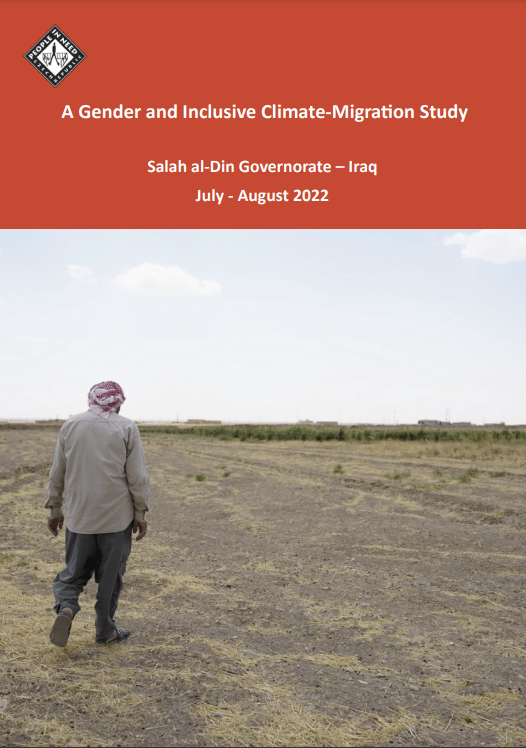Iraq remains the fifth most vulnerable country to climate change. Increasing temperatures, unpredictable rainfall, intensified droughts, sand storms and desertification are just some of the variables contributing to Iraq’s climate journey.
Climate change impacts are further compounded by the trans-boundary water governance and misinformed management of natural resources which is leading to negative impacts on Iraqi farmers, most noticeable in sustaining livelihood production. As a result, agriculture productivity is being reduced and the sector, the second-largest contributor to the country’s GDP in an oil-based economy, is shrinking. This is bringing about climate and environmental migration from rural to urban areas. Climate change has the potential to seriously limit the transition from humanitarian aid to development. This climate vulnerability study aims to review the available evidence of climate change trends and impacts in 3 villages in
Shirqat, Baiji, Tikrit District, Salah-al-Din Governorate, emphasizing the gender and social inclusion factors linked to this.
This study attempts to obtain a deeper understanding of migration, coping mechanisms and adaptation solutions, alongside movement dynamics within the target communities. The report also considers how the Government of Iraq, donors, international actors, and communities can mitigate, address, and prepare for impeding climate change impacts.
Climate Change, Economic Development, Migration
Research
English
Download Files
A Gender and Inclusive Climate-Migration Study
